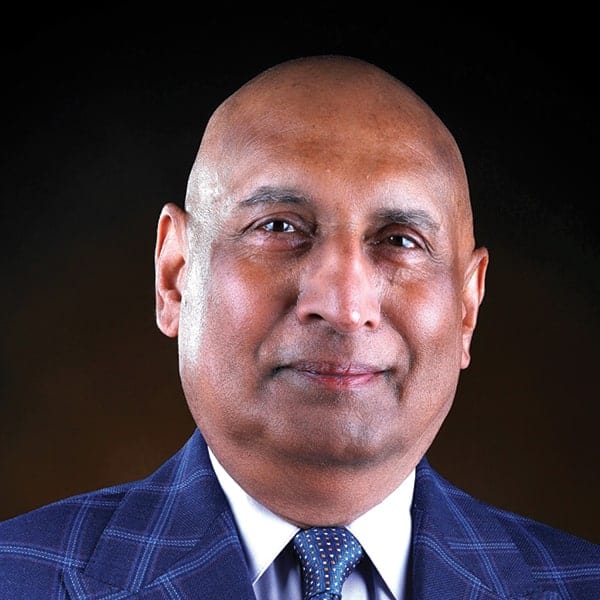By Bopanna Ballachanda
This article is a part of the September/October 2024, Volume 36, Number 5, Audiology Today issue.
As I write my final message as President of the American Academy of Audiology, I am filled with a deep sense of honor. It has been a privilege to lead this esteemed organization, and I am grateful to each member for their trust in me. The path to this point has been long and challenging, but I firmly believe it was worth every step. I am proud of our collective achievements this year and hope that they fill you with a sense of pride and accomplishment, as they are a testament to our unity and shared dedication.

Bopanna Ballachanda, PhD, ABA Certified
President | American Academy of Audiology
A primary focus during my presidency has been on membership. A significant achievement of this past year is the evaluation of the use of the Fellow title for American Academy of Audiology members. The history of how the Fellow title was selected is a moot point. The person(s) who proposed the title for membership likely had compelling and poignant reasons at that point in time. In the early days of the beginning of this great organization, a few dedicated pioneers had to implement a vision for establishing a new, strong home of, by, and for audiologists—the American Academy of Audiology.
As with any mature association, the American Academy of Audiology is ready to review and update its practices. One such change is the decision to eliminate the title of Fellow as a membership category. This decision was not made lightly, and I understand that it has raised concerns among some members. Some may feel a loss of identity, but I want to reassure you that being a member of the Academy still holds significant value. Your membership provides you with a range of benefits and opportunities and is vital to the Academy and its mission. This change is an effort to be transparent and to align the Academy with other professional associations. Our use of the Fellow term was misleading and could have been more accurate to the public as other organizations and disciplines use the term to distinguish achievements and accomplishments beyond joining an organization. We are an established and recognized organization, and membership of the Academy alone distinguishes you.
However, the Academy leadership recognizes that members wish to have pathways to distinguish themselves further. The American Board of Audiology is the credentialing arm of the Academy and offers certificate programs and certifications. The American Board of Audiology will continue to update and expand its offerings, with more certifications available soon. We also have appointed a task force of members to develop a new program to recognize members for their achievements and higher levels of professional growth beyond simply being members. This new recognition system, which we are developing with great care and consideration, will not only uphold the value of our achievements but also provide a clear pathway for professional growth, aligning us with other professional organizations and fostering a sense of unity and shared purpose.
Another aspect of membership on which I focused my presidency was member engagement. Your role as a member is not just important, it is integral to the success of our organization. Your influence on the profession, your voice in legislative areas, and your participation are all crucial. Together, we can shape and develop evidence-based guidance for best practices and build an inclusive community of audiologists. We also need your help nurturing our early-career audiologists and students as future leaders prepared to tackle the profession’s challenges. To continue the legacy of one of the Academy’s leading pioneers, Dr. James Jerger, audiologists must be part of the Academy, participate in its activities, and bring to life the great organization he envisioned.
As my presidency winds down, I am hoping to convey the importance of embracing representation and diversity in the broadest sense across the Academy and our profession. Diversity does not mean only our ethnic backgrounds; it refers to what we do as health-care providers, our patients, our training to think deeply and differently, and our challenges to explore avenues to help solve hearing and balance issues. To highlight the concept of inclusion, we have an article in this series by Professor Joseph (2023) advocating for academicians to look at all education spectrums. Diversity of thinking refers to the concept that there is more than one way to think about something. Diversity can significantly affect an organization’s overall performance. Your unique perspectives and experiences make our profession diverse and valuable, and we are committed to fostering an environment where everyone feels valued and respected.
Again, being your president in 2023–2024 was an honor.
References
Joseph A. (2023) The preceptor’s role in improving student clinical experiences. Audiol Today 35(6):22–33.


